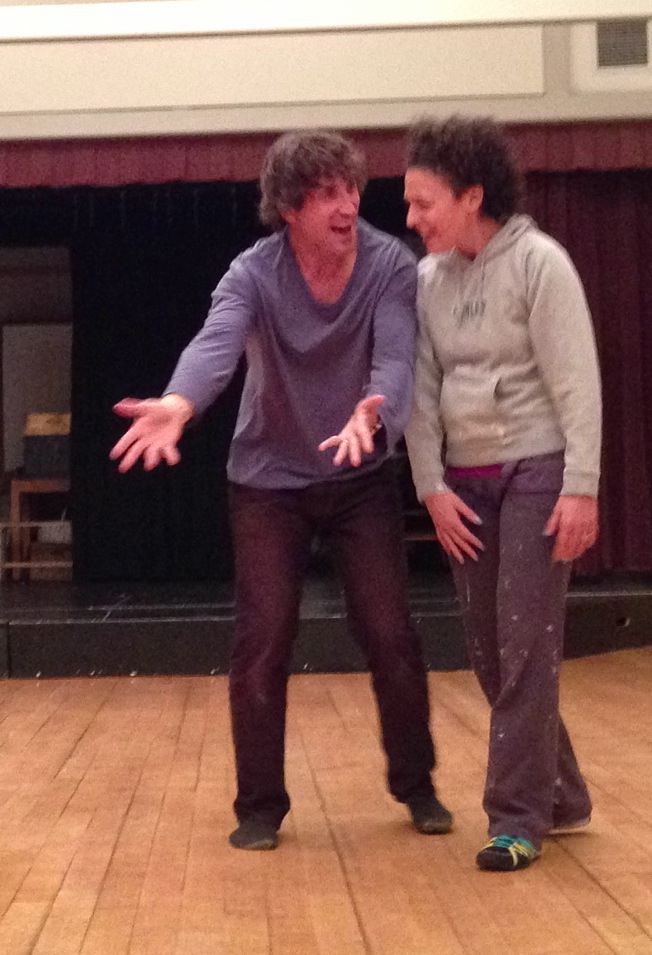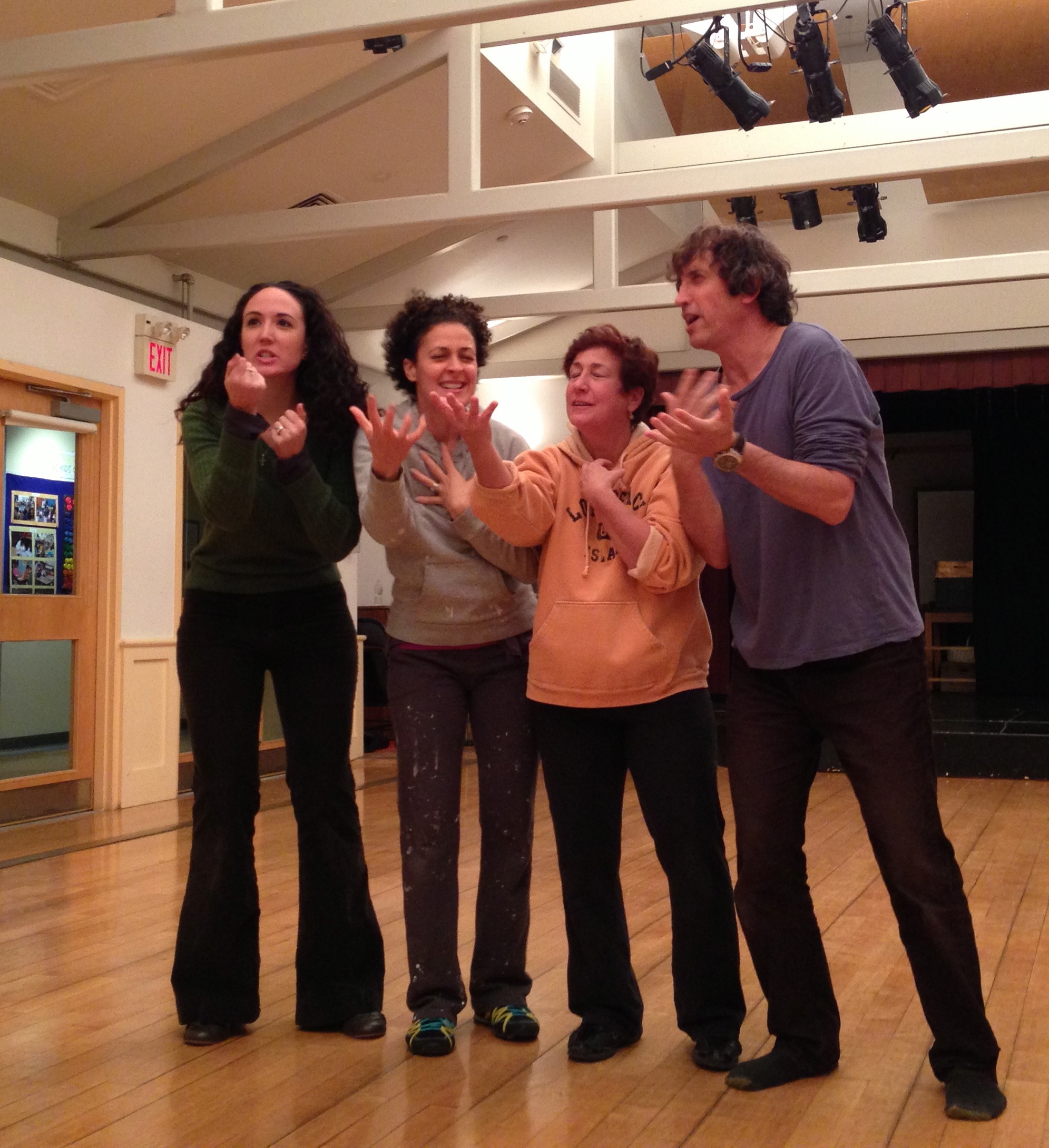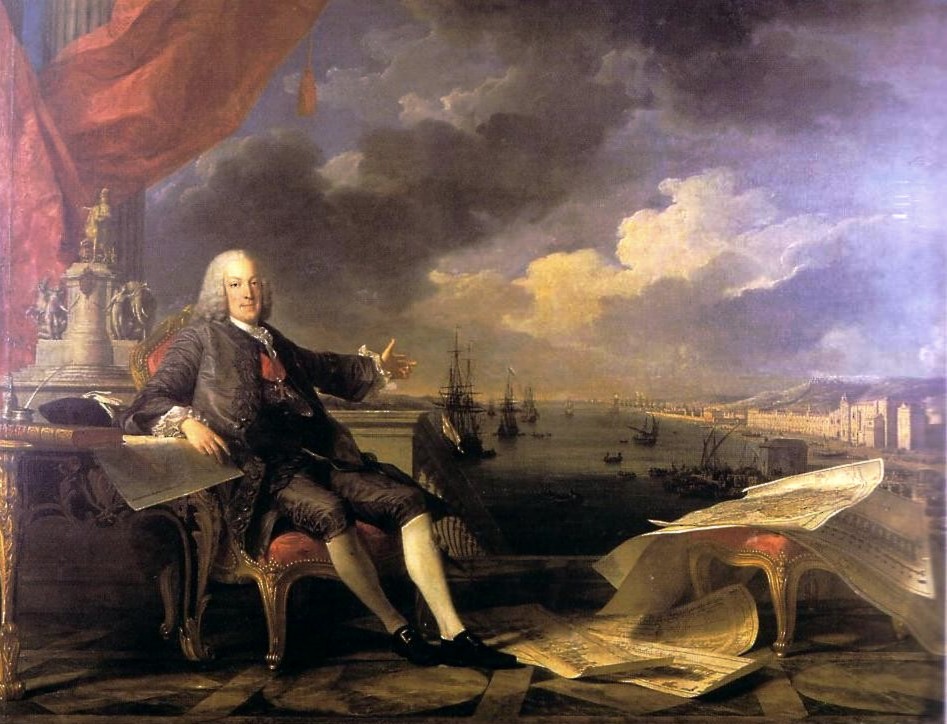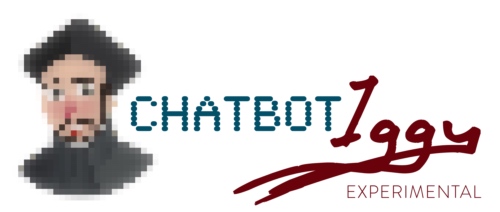“Tell me a story that’s been significant to you in the past year.” “Well,” I said to the conductor. “I was in religious life for two and a half years and left last February.” I told her about my discernment to leave and the fears I had about the uncertain future, whether I’d have a support network like I had the last couple years, whether I’d meet my soul mate, and if I’d be able to remain in ministry. “If you could give this story a name what would it be?” she asked. “A Life Change, Again” I said.
 The four actors got up and began acting out my story in various scenes. One scene was of bricklayers, laying out a beautiful path. Another was of two people in a boat, rowing somewhere. One of the bricklayers began delicately placing bricks before her feet and carefully stepping on them, straying from the original path. “I’m going to go on this road…” she said with caution in her voice. Meanwhile her onlookers spoke encouragement. “Okay! Yes! There’s going to be someone at the end of that road, too!” Back in the boat the duo spotted the shore of an island. You could feel their excitement as they arrived to discover trees full of delicious coconuts and pineapples.
The four actors got up and began acting out my story in various scenes. One scene was of bricklayers, laying out a beautiful path. Another was of two people in a boat, rowing somewhere. One of the bricklayers began delicately placing bricks before her feet and carefully stepping on them, straying from the original path. “I’m going to go on this road…” she said with caution in her voice. Meanwhile her onlookers spoke encouragement. “Okay! Yes! There’s going to be someone at the end of that road, too!” Back in the boat the duo spotted the shore of an island. You could feel their excitement as they arrived to discover trees full of delicious coconuts and pineapples.
This was my first experience of non-comedic improv theatre called Playback. It had its genesis in 1975 when a theatre student and a musician came together to create a way for people to let their stories be heard. Each performance includes the actors, the audience, a teller from the audience who shares a story, and a conductor who listens and asks the teller clarifying questions. My experience as a teller was at a rehearsal of the Boston Playback Company, a troupe that has performed for churches, homeless shelters, schools, and at corporate events.
Playback’s core is empathy and honesty, and it has strong ties with fields like drama therapy. It has been found to act as a method of healing and community building, among its many benefits. Nancy Capaccio, a co-director of the troupe, says that Playback offers a chance for community building by the simple witness of stories of the human condition, stories they can relate to. “It is rare in our society to be heard with such compassion, and yet at the same time, without attempts to ‘make things better’,” she says.
As a Spiritual Practice
Julia Kennedy is a member of the Vineyard Living Stories, a Playback group of the Greater Boston Vineyard church that meets regularly with the mission to perform for groups among the homeless or the youth. “I want to be a tool in God’s hands,” she says. “Letting Him use my body, voice, mind, and emotions to serve others.” Playback has become, to some, a spiritual practice through the honouring of people’s stories. When a teller sees their real life story performed before their eyes they often discover new insights. “It is affirming for tellers to have a group of people hear, understand, and validate their personal life experiences,” says Michelle Mount, another Vineyard group member.
 What touched me at the rehearsal was the care taken to understand my feelings and delve into it. It has a very sacramental nature. During one exercise the group was given various voting day stories along with their emotions. Standing tightly together the group as a whole cycled through each emotion with their words, actions, and expressions, giving a broad experience of voting day from several perspectives. Afterwards, one actor asked that the group not rush from one story to another. “Let’s dig deeper into the feeling,” he said. After each playback the conductor asks the teller if the playback matched their feelings and story. If not, the troupe re-does the scene as a way to complete the commitment to the teller’s story.
What touched me at the rehearsal was the care taken to understand my feelings and delve into it. It has a very sacramental nature. During one exercise the group was given various voting day stories along with their emotions. Standing tightly together the group as a whole cycled through each emotion with their words, actions, and expressions, giving a broad experience of voting day from several perspectives. Afterwards, one actor asked that the group not rush from one story to another. “Let’s dig deeper into the feeling,” he said. After each playback the conductor asks the teller if the playback matched their feelings and story. If not, the troupe re-does the scene as a way to complete the commitment to the teller’s story.
Sara Burd is a member of the Boston Playback Company and found that Playback has helped foster her gift of diving into the human experience with all its joys and discomforts. “In playing back someone’s story, you offer them a gift,” she says. “I strive to make the gift as honest and true as possible to support them in their spiritual journey.” This is not easy, but the actors have found astounding honesty among audiences they’ve performed for. Kennedy’s father shared a story at a Vineyard rehearsal about how God spoke to him during his wife’s cancer 15 years ago. He expressed that the experience had not transformed him, but after seeing the story played back he realized that he had indeed gone through a transformation. “It just wasn’t as sudden and dramatic as he had expected it to be,” Kennedy recounts. And another story that evening about sacrifice touched him. “It gave him a deep appreciation for a sacrifice someone else made, that otherwise may not have made an impression on him.”
Spiritual journeys are all about transformation and conversion. Playback offers a unique forum for this to occur in the midst of a community setting. When people hear others’ stories they may be transformed but also find themselves willing to stand up and share their story with strangers. “It is an integrity-based practice of compassionate listening and heartfelt connection,” says Mount. When someone becomes vulnerable through the telling of a deeply personal story the playback can often let the audience share in that person’s burdens whether it be pain, sadness, or guilt. There’s healing in this. And watchers come to know they’re not alone in their struggles, and that the human experience is varied. “It can help varying populations to understand one another,” says Teresa Dinaburg, another Company member who is pursuing a career in drama therapy and counseling. “I am continually reminded that we humans are more alike than different.”
All of the Playback performers I spoke with expressed some kind of personal or spiritual growth. It has allowed them to be better listeners, more empathetic and less quick to judge. “Its a brave and exciting way to communicate with others,” Dinaburg says. And like Kennedy, Burd feels Playback is a way to glorify God. “I view [the teller’s story] as an invitation from God to serve the teller with an authentic experience of their difficult emotions, to honor their story, and hopefully provide them with support to continue on with strength and wisdom.”
In the stories I shared that night during rehearsal, I was profoundly touched by the performers’ careful selection of metaphors, expression, and physical action to portray my feelings. I am reminded of Saint Ignatius who encourages Christians to explore those truths beneath our life’s stories and feelings. There’s a sense of sight being restored, even with a worn story you seem to know so well. Playback reminds us that our stories are never worn but contain truths that knit us all together.
Learn more about Playback:
Playback Theatre









Thank you for describing Playback Theatre’s spiritual aspect! I’ve been a Playback actor for 11 years and experience it as a key part of my spiritual practice. Alas, the Boston Playback company is no more, but interested readers can experience Playback at True Story Theatre’s monthly shows and workshops — see calendar page: http://truestorytheatre.org